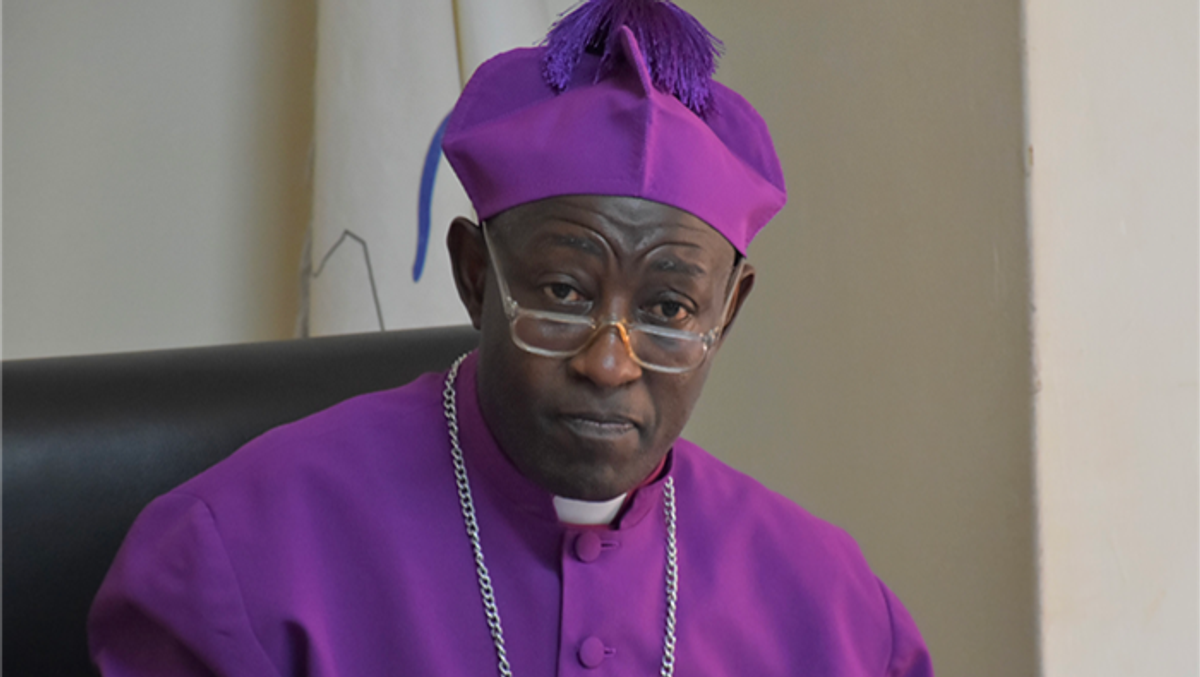
News
Kaziimba Accuses the Church of England of Abandoning Scripture, Condemns Mullally's Appointment as Archbishop of Canterbury
Archbishop Stephen Kaziimba, the Most Rev. and head of the Church of Uganda (COU), has strongly criticized the Church of England’s recent appointment of the Rt. Rev. Sarah Mullally as the first female Archbishop of Canterbury. Aligning with a growing number of conservative Anglican leaders around the globe, Kaziimba condemned the move as a break from biblical orthodoxy and traditional Anglican doctrine.
In a statement addressed to members of the Church of Uganda, Kaziimba described Mullally’s appointment as a “grievous decision” that represents a serious fracture within the Anglican Communion.
"Our sadness about this appointment is her support and advocacy for unbiblical positions on sexuality and same-sex marriage that reveal her departure from the historic Anglican positions that uphold the authority of Scripture for faith and life,” his statement reads in part.
He further characterized the decision as a continuation of a theological rupture that began in 2003, when The Episcopal Church (TEC) consecrated Gene Robinson, the first openly gay bishop. According to Kaziimba, Mullally’s promotion only widens the “tear” that has persisted ever since.
Kaziimba’s response came shortly after the Global Anglican Future Conference (GAFCON) issued a joint statement condemning the Church of England's direction. GAFCON leaders warned that the Communion’s unity is nearing a complete collapse, with many now referring to this moment as the “final unraveling” of the 85-million-member global Anglican body.
Expressing disappointment in the Church of England’s lack of repentance, Kaziimba said it had effectively isolated itself from the vast majority of Anglicans worldwide. He reaffirmed support for GAFCON’s 2023 Kigali Declaration, which removed the Archbishop of Canterbury’s global leadership role, reducing it to that of “Primate of All England.”
His message echoed sentiments from other GAFCON leaders, including Chairman Archbishop Laurent Mbanda of Rwanda, who referred to the decision as one made “with sorrow” and a sign that “Canterbury has relinquished its authority to lead.”
Despite the dismay, Archbishop Kaziimba expressed hope for the future of mission and ministry within the Anglican tradition, rooted in biblical fidelity.
“We want to assure our Christians in the Church of Uganda that, through Gafcon and the Global South Fellowship of Anglicans, we are part of a worldwide communion of Anglicans who continue to proclaim the historic and Biblical faith of Anglicanism – faithfulness to Christ and submission to the authority of Scripture. The future of Gospel-centred mission in our Anglican tradition is bright," he added.
Kaziimba emphasized that the global Anglican movement remains strong, with churches around the world continuing to uphold Scripture and the historic tenets of the faith. He affirmed that the "flame of biblical orthodoxy burns brightly" within this global fellowship.
Uganda has long been a leading voice of resistance within the Anglican Communion, particularly since GAFCON’s founding in Jerusalem in 2008. The Church of Uganda severed ties with The Episcopal Church over issues related to sexuality and has frequently criticized the Church of England for its "unbiblical" teachings, especially regarding homosexuality.
This tension reached a notable moment during Kaziimba’s enthronement in 2020, when he warned then Archbishop Justin Welby who was present that Uganda would reject Canterbury’s leadership if it continued to endorse progressive doctrinal shifts.
In 2023, when the Church of England’s General Synod approved blessings for same-sex marriages and civil partnerships, though it maintained a ban on church weddings for same-sex couples, the Church of Uganda began formal processes to break from Canterbury. Citing the move as a clear departure from biblical principles, Kaziimba and his church reaffirmed their commitment to conservative Anglicanism.













Sunrise reporter
Leave a Comment
Your email address will not be published.